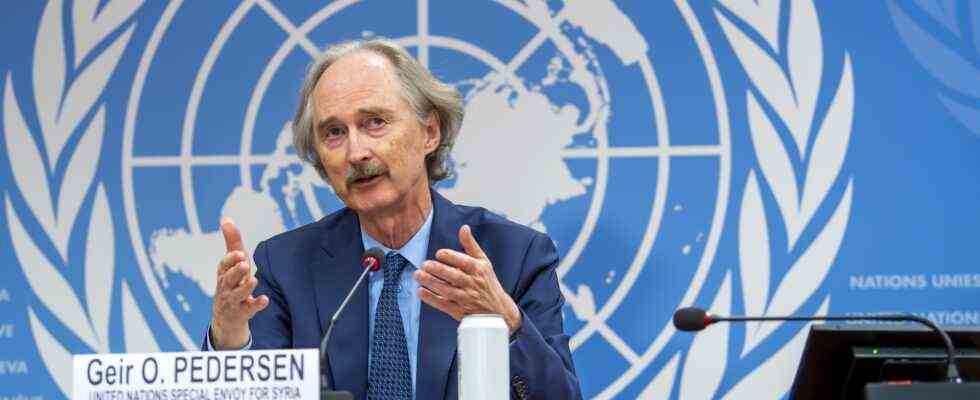Status: 10/18/2021 4:30 a.m.
After several unsuccessful attempts, work on a new constitution for Syria should actually begin. Representatives of the government and the opposition agreed on this.
Five rounds of talks yielded no tangible results. But now it should finally be more concrete. That said Geir Pedersen, the Syria representative of the United Nations, before the new talks in Geneva. He agreed on this on Sunday with the leading representatives of President Assad and the opposition.
“The two now agree that we not only prepare the constitutional reform, but that we also work it out. The new thing this week is that we will get a ‘draft process’ in motion – for a constitutional reform in Syria,” said Pedersen.
For two years now, the Norwegian mediator Pedersen has been trying to implement a UN resolution from 2015. This stipulates that 50 representatives each of the Assad regime, the opposition and civil society will work out a new Syrian constitution, which will then be decided in a referendum. Long-term goal: Free elections in Syria.
Pedersen: The constitutional committee alone will not solve the crisis
In Geneva, 15 representatives from each of the three groups will initially come together under the patronage of UN mediator Pedersen. The talks of the so-called “Syrian Constitutional Committee” begin in the morning at 10 o’clock and should last until the end of the week.
“The constitutional committee is an important building block in the political process,” said Pedersen. But it will not be able to solve the Syrian crisis on its own. The other aspects of the crisis should also be addressed.
And they give little cause for optimism. After ten years of war, Syria is in ruins – more than 13 million people are dependent on humanitarian aid according to UN estimates, and over 90 percent survive just under the poverty line.
But head of state Assad remains in power with Russian and Iranian support – more than ever, it seems. Around 70 percent of the country is under his control. In May, Assad secured a fourth term in a more than controversial election. Although his regime hit its own people with poison gas and bombs, and countless Syrians disappeared in Assad’s torture chambers.
Opposition urges a hurry
Assad also appears to be becoming socially acceptable again among the Arab brothers. He recently phoned Jordan’s King Abdallah for the first time in ten years, sent his Minister of Economic Affairs to the Expo in Abu Dhabi, and asked the Lebanese government to allow gas deliveries via Syria in view of the dramatic energy crisis.
Hadi Al-Bahra, who is taking part in the constitutional talks as the leader of the Syrian opposition, urged the journalists’ association ACANU in Geneva that evening to be more urgent: “If we do not advance faster with the constitutional committee, it will cost human life. And we would not do what we must do in the face of the suffering of the Syrian people. ”
How many rounds the Syrian Constitutional Committee would have to meet before there actually was a new constitution and free elections in Syria, a journalist in Geneva asked the UN mediator Pedersen. The answer was short: “I don’t know.”

